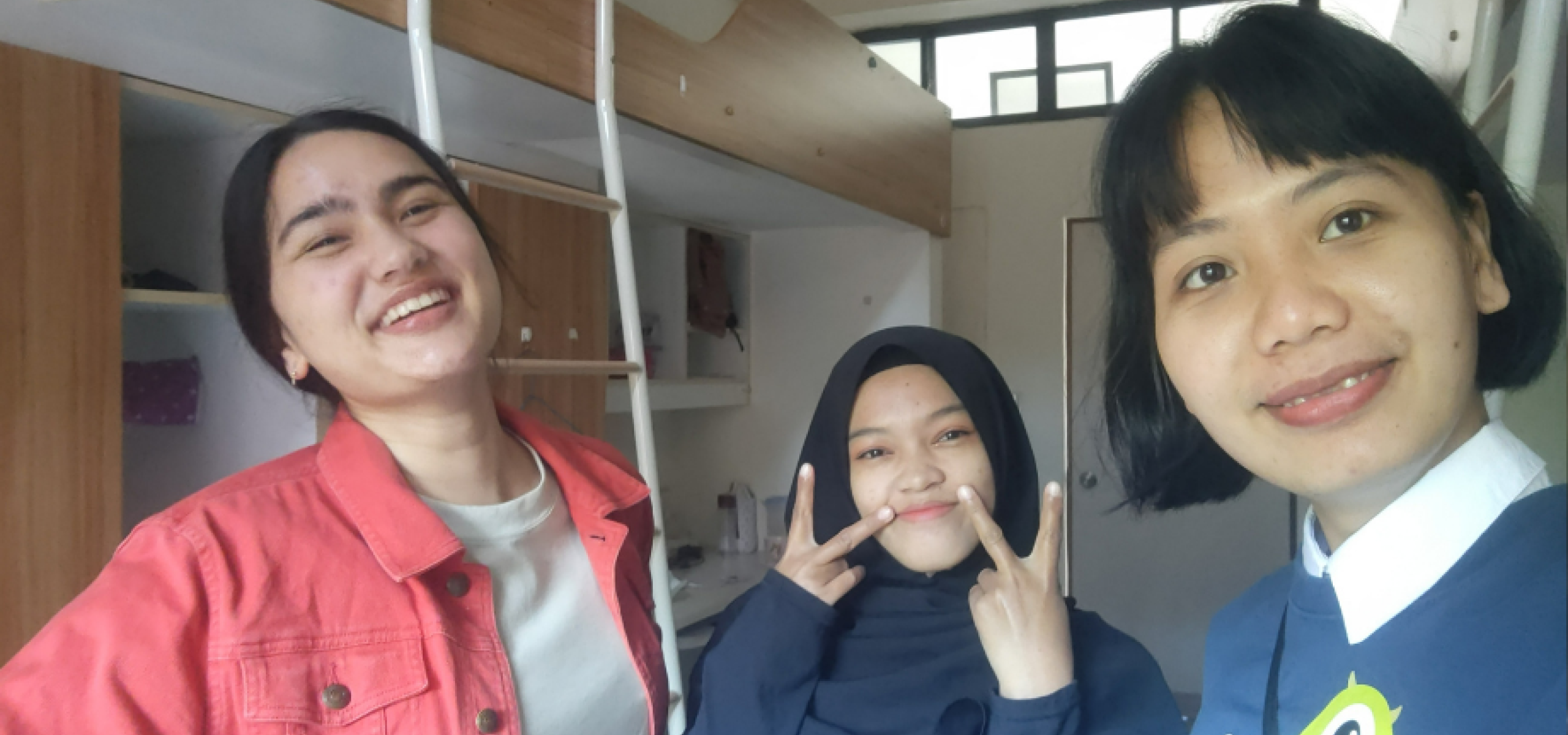
ANU Law student ambassador Cherish Tay (left) with her roommates.
Many times, as a foreigner trying to navigate the new systems of doing things in Taiwan, I’m at a loss of how to do the simplest things.
Editor's note: Ever wondered what it’s like to study abroad? ANU Law student ambassador Cherish Tay gives us the down-low on her adventures and experiences studying in Taiwan in her new blog series.
By Cherish Tay (student ambassador)
Both of my roommates here at Kaohsiung’s National Sun Yat-Sen University are, like me, international students. One is from Indonesia and the other is from Vietnam.
Though I lived at Bruce Hall for my first two years at The Australian National University (ANU) and am familiar with communal living from years of house-sharing after that, this is my first time sharing a room with two other people long-term.
Even with the language barrier (with my Vietnamese roommate I speak Chinese, with my Indonesian roommate I speak English, and they together use a mixture of both along with significant use of Google Translate) we manage to work things out together.
One day, an old electric stove that my roommate used to make simple meals in our dorm room, gave out. While I automatically thought we would buy a new one, my roommate’s first response was to go in search of an Allen key at the local dollar shop. Unluckily, it was the wrong size and she was planning to walk all the way back to change it when I returned home and she explained the situation.
I suggested to my roommate that we knock on one of our neighbours’ doors instead to ask if we could borrow an Allen key. To my surprise she suddenly became shy and said she didn’t want to bother them because, “they’re our seniors here”.
I thought how respectful and polite she was to not want to be a nuisance to our neighbours. I, on the other hand, had no such inhibitions and went over to knock on their door.
Our neighbour didn’t have an Allen key in the end, but told us that the dormitory service centre would be able to lend us one. After we got it, before my wondrous eyes, my roommate opened up the back of the electric stove, tinkered with the fuse and managed to get it up and running again.
Although we did buy a new electric pot later and finally laid the old stove to rest, it was one of those situations where each of our personal strengths, her resourcefulness and skill, my relative lack of inhibition when it comes to bothering people when necessary, meant we figured it out in the end.
Many times, as a foreigner trying to navigate the new systems of doing things in Taiwan, I’m at a loss of how to do the simplest things. For example, making an appointment for a COVID-19 booster (Should I book online? Do I find a clinic and call? How do I find a clinic?) or paying my phone bill (it turns out I had to pay at one of my telecom’s physical stores, and even then, cash only).
When figuring out how to do things in Taiwan, I rely on my knowledge of how things are done in Australia. However, more often than not, I’m left scratching my head in confusion. My roommates also rely on the ways of doing things in their own countries and somehow, when we all help each other, we manage to get it done. Perhaps not the way a Taiwanese person would have done it, but done nonetheless.
In fact, my roommates and I are far more different than we are alike, but because each of our daily lives are mediated by our own cultures and backgrounds, we feel the same disjunct between ourselves and the world that characterises us as being foreign. For this reason, our friendship is not like my friendships back home (which are also more precious now than ever) because it is forged in our mutual experience of otherness.
These new friends I have helped me when I needed it and I help them too. Despite our many differences, the language barriers, and the fact that I’ve known them for a total of three months, they feel very precious to me already.

